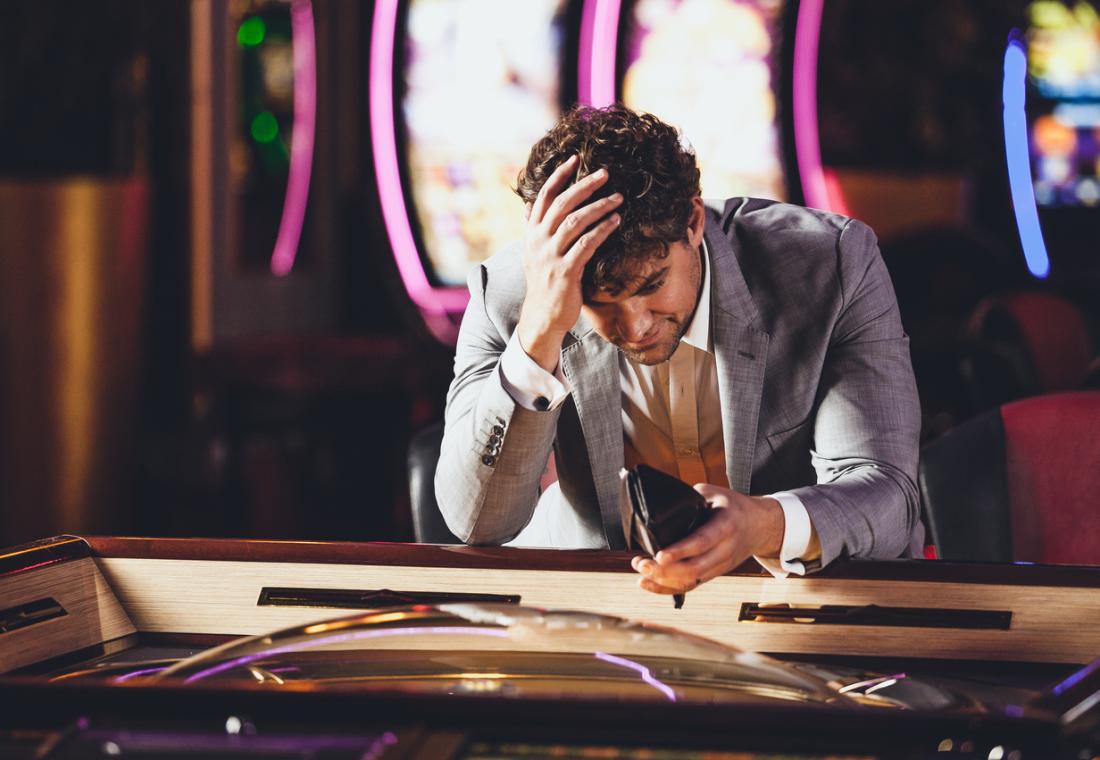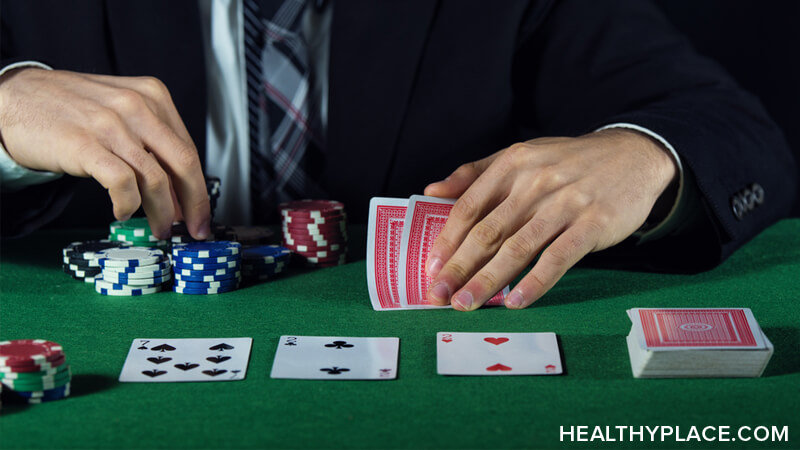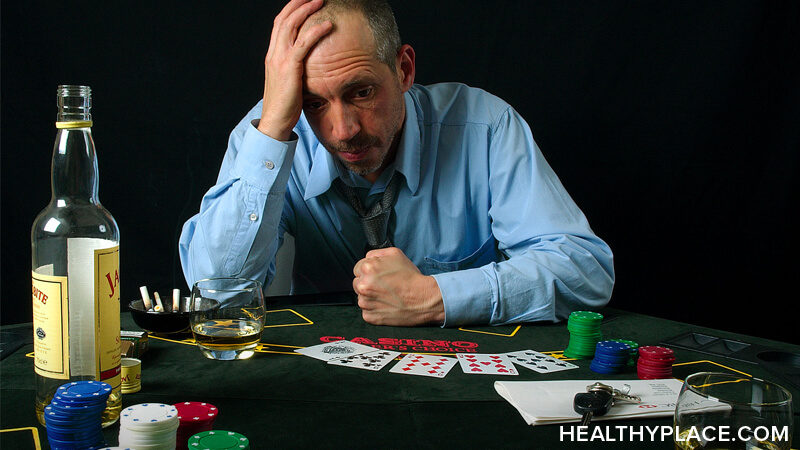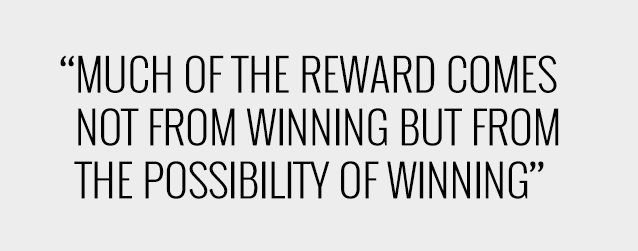Psychology Of Gambling Problem
In the field of gambling research, there are five (yes, five) cognitive fallacies a person in a fail state can go through that will eventually lead them right back to gambling. Gambling is a diverse activity, so different types of gambling addiction exist as well. It is not always obvious when someone is addicted to gambling. Contrary to popular belief, the act of gambling is not restricted to slot machines, cards and casinos.
Most gamblers lose. So why do people bet their hard-earned money? Find out a bit about the psychology of gambling, why people bet money and the reasons for gambling.
Psychology of Gambling: Reasons for Gambling
- I’m a proponent of gambling for fun, but I’m not a fan of every single thing that people in the gambling industry do. The psychology of gambling is too often taken advantage of to the players’ detriment. One example of this is the industry’s use of the term “gaming” to refer to “gambling.”.
- Relationships, particularly regarding the development of gambling problems. This study investigates the nature, frequency, and preferences of gambling behavior as well as problem gambling severity and comorbid conditions among DFS players. Data were collected from an epidemiologic survey of 3634 New Jersey residents on.
Ok, so we all understand that gambling offers you the chance of winning money or prizes, but have you considered some of the other reasons for gambling? A look into the psychology of gambling offers insight into that question.
Why Do People Gamble? - Risk Taking
One of the reasons for gambling is that it's human nature to feel excited when taking risks and the positive feeling gained from gambling is no different. 'Will my numbers come up?' 'Will my team win?' The sense of anticipation creates a natural high, an adrenalin rush, a feeling that very many of us seek when looking for fun and entertainment. A feeling that some people believe they cannot live without.
Why Do People Gamble? - Escapism
The gambling environment can provide an escape from everyday life. Whether it be the glitzy casino environment, a loud and exciting amusement arcade or even an online betting company, for the time that we are taking part we can be surrounded by different people, different sounds and emotions, all of which stimulate and arouse our senses.
Psychology Of Gambling Problem Solver
Why Do People Gamble? - Glamorous
The media and advertising agencies understand the psychology of gambling and often portray a stylish, sexy, fashionable image of gambling. In film and TV, we see characters enjoying a night at the casino or an afternoon at the races. There is often a suggestion of 'high society' and attending at 'a place to be seen'.

Why Do People Gamble? - Social
Gambling is accepted as part of this country's culture and as such is widely participated in (with varying frequency) by the majority of the population. Some young people are introduced to gambling by learning to play card games with their parents at home, maybe we go the bingo with friends on a Friday night or meet after school at the amusement arcade.
Psychology of Gambling: The Common Misperception
The above reasons for gambling all tie into this: most people think about gambling as a low-risk, high-yield proposition. In reality, it's the opposite: a high-risk, low-yield situation. The odds always favor the house. Despite that, the thought and excitement of hitting a casino jackpot are often too alluring - regardless of its probability.
Learn more about Types of Gamblers and Signs of Gambling Addiction.
Sources:
- Illinois Institute for Addiction Recovery
next: What Type of Gambling is the Most Addictive and Why?
~ all gambling addiction articles
~ all articles on addictions


APA Reference
Gluck, S. (2008, December 29). Psychology of Gambling: Why Do People Gamble?, HealthyPlace. Retrieved on 2020, December 15 from https://www.healthyplace.com/addictions/gambling-addiction/psychology-of-gambling-reasons-for-gambling


If you are a regular reader of our articles, you already know how the random number generator works in slot machines and other games. Often, however, in the heat of the game, the unconscious part of the brain prevails over the reasonable one and unsupported predictions about how the game might begin to form. The most common cognitive biases associated with probability include Gambler’s Fallacy, Hot Hand Fallacy and Near Miss Fallacy.
Gambler’s Fallacy
Gambler’s Fallacy is a relatively well-known term among psychologist and more educated players. It is a belief that if something has happened many times in the row, the likelihood that this will happen in the future decrease. In this way, the brain tries to find a balance between numbers or events, even though they have no connection with each other.
The Gambler’s Fallacy is also sometimes referred to as the Monte Carlo Fallacy, according to the city where the phenomenon was probably first observed. On September 18, 1913, one casino earned millions overnight, when black on roulette fell 26 times in a row, and people massively bet on red throughout the series.
Hot Hand Fallacy
Psychology Of Gambling Problem Strategies
Hot Hand is very similar to the Gambler’s Fallacy. It is an assumption that it is possible to predict the result based on an unrelated series in the past. Such as outputs of the random number generator. This time, however, the brain is not trying to find a balance, but on the contrary, players believe that if they experience a series of successful events, this series will continue.
This concept, although very often associated with gambling today, initially originated in basketball – be on a hot hand. While in basketball, this assumption is still entirely rational; its analogy to gambling is absurd.
Near Miss Fallacy
The last mistake associated with the gambling probability is the delusion of close winnings. This mistake is based on the belief that if you have lost, for example, that only one symbol is missing on the payline, or if the number on the roulette wheel is close to your bet, your chances of winning increase the next round are higher. You can notice this on slot machines that offer a bonus for three scatter symbols. As soon as two stopped on the reels, the last scatter flashes in the animation. In some countries, however, these tactics are prohibited by law.
Illusion of Control
This concept was first defined in the context of gambling by psychologist Dr Ellen Langer. This is a subconscious impression of players who believe they have more control over the game than they have. This gambling delusion applies only to games of chances such as roulette or slot machines. In card games like blackjack or poker, gaming experience and skills are crucial and can be learned through training.
Dr Langer has conducted several experiments on the subject, which have led to surprising conclusions. Although test participants did not have proper control over the results of the game, most of them concluded during the testing that positive results were due to their ability.
For example, how players try to control the game can be founded in craps, where it is proven that players throw dice more strongly if they want a higher number to fall.
Selective Memory
Psychology Of Gambling Addiction
Another problem with cognitive functions is associated with selective memory. Selective memory is a very peculiar phenomenon whereby the human brain favours memories that strengthen our beliefs, hopes or expectations. This can be very problematic, especially for gambling, because we remember mainly winnings instead of losses.
Of course, one does not forget all the losses but instead gets a distorted view of their ratio to winnings. This may result in players continuing to bet beyond the point where they should no longer play. Many players are in great shock when they find out how much they have lost in the last year.
Faith and Beliefs
Psychology Of Gambling Problem Meaning
The last part about how the cognitive function of the brain affects gambling will be an analysis of belief in various personal attributes. For example, one of these features may be an idea of how the luck works. Some believe that luck can come and go. Some players believe that various things, people or activities can increase their luck. It can be a lucky coin or number, a woman at the table, or people, for example, can believe that they will raise their chance of winning when they go to the casino on a particular route.
Gambling players generally belong to very superstitious spirits, so many activities should or should not be done. The best-known ones are probably blowing the dice before throwing, crossing your fingers, saying aloud the winning number or tapping on wood.